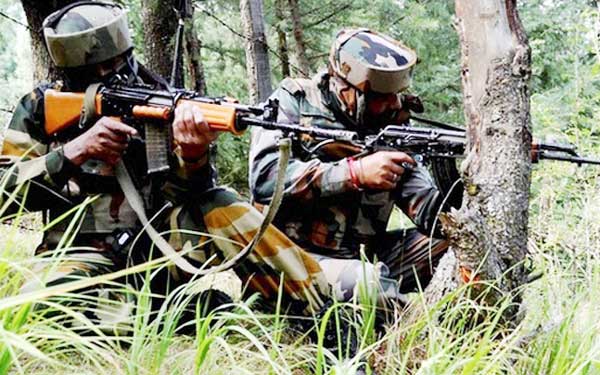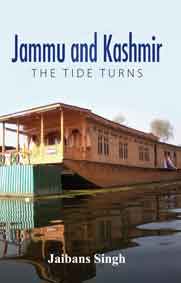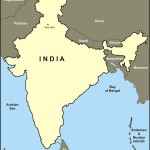The decision of the Union Government to withdraw the Armed Forces Special Powers Act (AFSPA) from Meghalaya and from eight out of 16 police stations in Arunachal Pradesh is a welcome move. It indicates firm resolve to build on the constituency of peace that has taken roots in the region. It is notable that three years earlier Tripura also saw AFSPA being lifted after 18 years.
The decision to revoke AFSPA in certain areas of the North-East has been taken on the basis of a visible drop in levels of violence and insurgency in the two states. A similar situation is, by no means, obtainable in Jammu and Kashmir.
A political fallout, in Jammu and Kashmir, of this very good decision was expected and the same is now apparent on predictable lines. Politicians of different hues in Kashmir have called for a similar revocation of the Act in Jammu and Kashmir too.
“Time and again we have demanded its (AFSPA) withdrawal. If GOI can remove it from its north-eastern territories, this cruel and merciless power bestowed upon 8 lakh Indian forces in J&K should be revoked immediately!” tweeted Mirwaiz Umar Farooq, the Chairman of the Hurriyat Conference.
The Congress leadership of the Kashmir Valley and the National Conference took the opportunity to politically corner the ruling PDP-BJP dispensation. Their demand for revocation of the Act was based on the commitment made by the ruling coalition of taking appropriate steps towards revocation of the Act in the state.
The response of the Government was articulated by Naeem Akhtar, the spokesperson of the Government. While terming the revocation of AFSPA from the north-eastern states as good news, he stressed upon the need to create conditions for its removal from the state. He also appealed for assistance from Pakistan in this direction.
It is notable that a few months back in early February, Chief Minister Mehbooba Mufti had ruled out revocation of AFSPA in Jammu and Kashmir anytime soon due to the “prevailing conditions.” By so saying she was hinting at the continuing attempts by Pakistan to infiltrate terrorists in the region, the continuing terrorism initiated incidents of violence in the state and the continuing efforts of certain element to pursue political of divisiveness and disruption under foreign influence.
The security forces have contained the high threshold of terrorism in the Valley with great difficulty and after buying a large number of fatal casualties, they simply cannot afford a reversal of the position of advantage that they have created with great effort.
“If the situation deteriorates, the footprint of security forces will increase. If militancy or stone pelting increases, you will see more footprints of police. We don’t want that to happen,” was the strong statement made by the chief minister.
While indulging in the aforementioned political brinkmanship, and that too on the sensitive subject of security, the so-called leaders of Kashmir are doing a great disservice to their people. At this stage, when the security forces are gaining an upper hand against the evil forces aiding and abetting terrorism, such statements misguide the people and lower the morale of the forces.
These statements are also missing out the main point! The decision to revoke AFSPA in certain areas of the North-East has been taken on the basis of a visible drop in levels of violence and insurgency in the two states. A similar situation is, by no means, obtainable in Jammu and Kashmir.
The move reflects the willingness of the security forces to take a back seat as and when the civilian establishment gains confidence to take responsibility for maintaining law and order and security of a region inflicted by insurgency/terrorism. The ease with which the Indian Army has facilitated revocation of the Act in the areas being spoken of puts paid to all insinuations of personal agendas and reinforces its oft repeated righteous stand on the issue.
It this demonstration of commitment to peace that needs to be leveraged in Kashmir; If core segments of the political leadership sheds personal agendas and joins the common people in their efforts to usher peace and prosperity there will remain no reason to continue with AFSPA in the state.
It needs to be noted that the enemy having penetrated the civilian population is curbing the liberty of the people and the security forces are, with Herculean effort, ensuring that the right to life and dignity of the civilian population is not compromised by such mercenary and criminal elements.
We must not forget that the Army got involved in operations in Jammu and Kashmir, not of its own volition, but because of the deteriorated internal security situation caused by foreign interference.
There is a palpable national apprehension about revocation of AFSPA in Jammu and Kashmir which is not without reason. The security forces have contained the high threshold of terrorism in the Valley with great difficulty and after buying a large number of fatal casualties, they simply cannot afford a reversal of the position of advantage that they have created with great effort.
The parameters that would facilitate revocation of the Act in Jammu and Kashmir are not difficult to understand. One, there should not be a single terrorist, foreign or local, operating in the state; two, there should be no ceasefire violation; three, there should be no infiltration bid from across the border; four, the terror structure operating against India in Pakistan should be totally dismantled and terror mongers like Hafiz Saeed, Maulana Azhar, Syed Sallahudin should be put behind bars where they belong; five, the separatists should give up on their politics of divisiveness and disruption and agree to pursue gainful political activity under the Constitution of India; finally, the wounds inflicted on the psyche of the population due to decades of terrorism and violence should be filled and normal, peaceful, democratic activity should become a norm across the state.
Instead of using AFSPA and other such enabling legislations as political tools the leadership would serve the people better by leveraging the presence of the security forces to obviate the roadblocks to the ushering of peace and normality process. If the people of Kashmir, through a united leadership, send a stern message to Pakistan that they will not tolerate any interference in their lives, the task of the security forces in countering misadventures from across the border will become that much simple. Under such circumstances AFSPA will not even have to be revoked; it will die a natural death.
We must not forget that the Army got involved in operations in Jammu and Kashmir, not of its own volition, but because of the deteriorated internal security situation caused by foreign interference. The soldiers would like nothing better than cessation of active operations in Kashmir and a return to barracks where they can enjoy the beauty of the Valley. One can only hope that such an environment becomes a reality at the earliest and what has been done in the North-east is repeated in the state.






